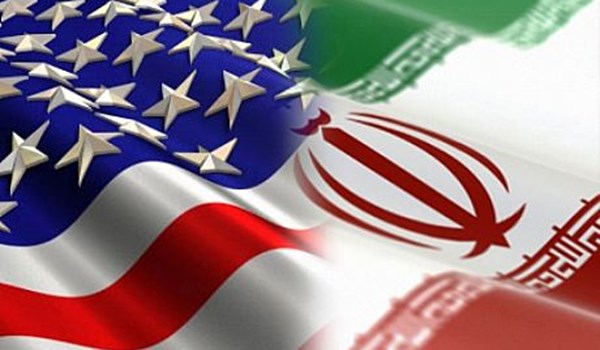
RNA - Trump’s repeated expression of support for the rioters, and the fact that the US has repeatedly backed such movements in other nations to try to impose regime change, has Iranian officials taking the matter to the UN, accusing the US of “grotesque meddling” against them.
Trump has provided no indication of what the US support/intervention would ultimately look like, and US Ambassador Nikki Haley has called on the whole international community to stand with the protesters – which they didn’t. However, it’s not that hard to foresee what Trump’s “great support” would look like in the coming days or weeks:
- The violent protests in Iran are now over – after millions of ordinary Iranians took to the streets nationwide to rally in support of the establishment. Even Tehran is calm these days. Calm in Tehran and scenes of larger pro-government rallies are further proof that the momentum has run out on the foreign-backed seditionists – with no provocations of course.
- Iranians have no shortage of historical examples of American hostility against them, so they don’t need much convincing to believe that talk of eventual US involvement signals covert involvement that’s ongoing. That sedition is being a US-funded plot both discredits the violent protesters among the public and gives the government the evidence that this was indeed a foreign-instigated campaign.
- The small anti-government protests were designed to crest right as a crisis point for the nuclear deal approaches. Starting on January 13, Trump might use – as he promised during his presidential campaign - the violence as a pretext to re-impose economic sanctions that the US agreed to lift under the 2015 nuclear deal. Despite the agreement, those sanctions have remained in place, technically; it’s just that president Obama and, thus far, Trump, periodically agree not to enforce them, keeping the deal alive. In other words, Trump might use this imminent opportunity to kill the Iran nuclear deal he despises, all by doing nothing.
- The good thing is that the European Union, China, Russia and a large number of UN member states are against Trump and his anti-Iran stance. True, there is a wave of concerted allied diplomacy aimed at keeping the US in the deal, but that does in no way mean they will continue to do so under Washington’s pressures.
- After the previous decertification, Britain, France and Germany warned Trump in a joint statement against taking “any steps that might undermine” the agreement with Iran, formally known as Joint Comprehensive Plan of Action or JCPOA, such as re-imposing sanctions on Iran lifted under the agreement. But the Europeans are relatively silent this time – particularly after the violent protests in Iran. Western media outlets also say they are not pressing the White House, which clearly means the anti-government protests were indeed deliberately preplanned to coincide with the nuclear decertification deadline on January 13.
Let’s hope the Europeans and the rest of the international community remain committed to the agreement and that they will do everything to stop Washington from reneging on the nuclear deal. Otherwise, there will be no reason for Tehran to remain in a deal that’s dead. If the Americans kill it on January 13, Tehran will no longer be subject to the negotiated restraints on its nuclear program.
In the prevailing circumstances, the conclusion has to be this: The riots (and not anti-government protests) were a matter of Iran’s external enemies, especially the Trump regime, which is desperate to destabilize the country by any means possible, even if that requires further pressuring Iran, encouraging deadly protests, not waiving the sanctions, or violating the JCPOA.
What else could you possibly expect from a regime that backs Saudi airstrikes that have been carried out for nearly three years and have left Yemen in the grips of a cholera epidemic and a near-famine? The humanitarian crisis that's exploded in Yemen as a result of the US-backed war in the impoverished country offers further evidence that Washington’s support for similar violence and carnage in Iran is premeditated.
Iranian officials should take this serious matter to the UN Security Council for further action. The biggest mistake is to stand by and allow Washington and its partners Saudi Arabia and Israel flagrantly flout international law by meddling in Iran’s internal affairs. Under its own Charter, the world body should take direct action to end such “grotesque meddling.”
847/940